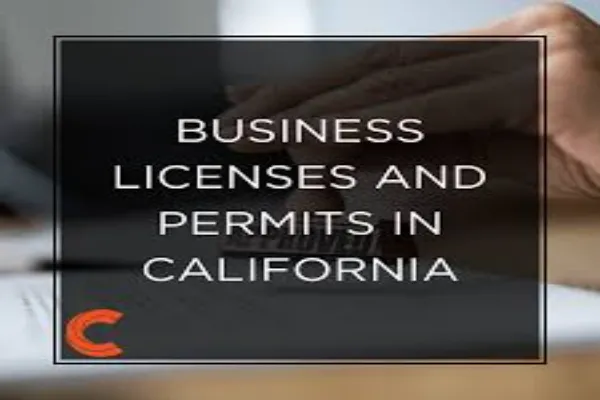
Summary:
This guide provides a clear overview of the essential licenses and permits required to start and operate a small business in California. It explains the types of licenses entrepreneurs may need, the application steps, and where to obtain them to ensure legal compliance and smooth business operations. Whether you’re launching a retail store, service, or food establishment, this article helps simplify California’s licensing requirements.
Starting a small business in California is an exciting journey, but it also involves navigating a complex set of rules and regulations. One of the key requirements for starting any business in the Golden State is obtaining the proper licenses and permits.
Whether you’re opening a small retail shop, a restaurant, or offering services, knowing the ins and outs of small business licenses in California is crucial to ensure compliance with state and local laws.
In this guide, we’ll break down the types of licenses you might need, the application process, and where to get them to help you start your business the right way.
Why Do You Need a Small Business License in California?
Licenses and permits are required to ensure that your business operates within the bounds of California’s laws and regulations. They help maintain public health, safety, and welfare, while also ensuring that businesses are compliant with tax obligations.
Failing to obtain the appropriate licenses can result in fines, penalties, or even business shutdowns.
In California, businesses may require both state and local licenses. The type of license you need depends on the nature of your business, the location, and whether you’re selling products or offering services.
Types of Small Business Licenses in California
The licenses you need can vary widely depending on the type of business you’re starting. Here are some common types of business licenses and permits that California entrepreneurs might need:
1. General Business License
Every business in California, regardless of size, must obtain a general business license from the city or county where the business operates.
This license authorizes you to legally conduct business in that area and ensures that your business is recognized by local authorities. Fees for this license vary depending on your business location and type.
2. California Seller’s Permit
If your business involves selling or leasing tangible personal property, you’ll need a California Seller’s Permit. This permit, issued by the California Department of Tax and Fee Administration (CDTFA), allows you to collect sales tax from customers and remit it to the state.
Businesses like retail shops, wholesalers, and online sellers are required to have a seller’s permit. Even if your business is not physically selling products in California but has an online presence, a seller’s permit may be necessary.
3. Professional and Occupational Licenses
Certain professions in California require specialized licenses, including but not limited to:
- Contractors: Anyone in construction or repair services must obtain a contractor’s license from the Contractors State License Board (CSLB).
- Healthcare Professionals: Doctors, nurses, therapists, and other healthcare providers must acquire the necessary licenses from the appropriate boards within the California Department of Consumer Affairs.
- Real Estate Agents: If you plan to engage in real estate transactions, a real estate license from the California Department of Real Estate (DRE) is mandatory.
Be sure to check with the relevant boards or agencies for your specific profession to determine the licensing requirements.
4. Food Establishment Permit
If you’re opening a restaurant, food truck, or any other business that serves food, you’ll need a food establishment permit. The California Department of Public Health (CDPH) and local county health departments issue these licenses to ensure that food safety regulations are followed.
Additionally, you may need a food handler’s permit, which certifies that employees understand food safety principles.
5. Health Permits
Businesses that involve handling hazardous materials, such as those in the healthcare, beauty, or construction industries, may require additional health and safety permits. These permits often involve compliance with environmental and safety standards.
6. Signage Permits
If you plan to put up a sign for your business, a signage permit is likely required by the city or county. Different municipalities have varying rules about the size, type, and placement of signs to ensure they do not obstruct roadways or violate aesthetic guidelines.

Steps to Obtain a Small Business License in California
The process of obtaining the required licenses in California involves several steps, each of which must be completed in order to operate legally.
Step 1: Choose Your Business Structure
Before applying for licenses, it’s essential to decide on your business structure. Your business type, whether it’s a sole proprietorship, LLC, corporation, or partnership, will influence the licenses you need.
- Sole Proprietorships may not need to register with the state (unless they are operating under a business name different from the owner’s legal name).
- Limited Liability Companies (LLCs) and Corporations must file with the California Secretary of State and may need to obtain federal employer identification numbers (EINs) from the IRS.
Step 2: Register Your Business Name
If you plan to operate under a name other than your personal name, you must file a Doing Business As (DBA) with your local county. This step lets the local government and public know who is behind your business.
Step 3: Obtain Your Seller’s Permit (If Applicable)
If you plan to sell taxable goods or services in California, you’ll need a seller’s permit. You can apply online through the California Department of Tax and Fee Administration (CDTFA) website. Once approved, you’ll be able to collect sales tax from your customers and remit it to the state.
Step 4: Apply for Local Business Licenses
Check with your local city or county government to determine the requirements for obtaining a business license in your area. Local governments may also require additional permits, such as zoning permits or signage permits.
Step 5: Apply for Professional Licenses (If Necessary)
If your business requires specialized professional licenses, reach out to the appropriate licensing boards in California. Some businesses may need to take an exam or submit proof of experience before they are licensed.
Step 6: Register for State and Federal Taxes
Once you’ve obtained your licenses, ensure that your business is registered for any necessary state and federal taxes. You’ll likely need to register with the California Employment Development Department (EDD) if you have employees.
You’ll also need to apply for a Federal Employer Identification Number (EIN) if you plan on hiring employees or operating as a corporation or LLC.
Step 7: Comply with Other Permits or Zoning Laws
Lastly, make sure your business complies with local zoning laws and other special regulations. This may include health permits, building permits, or environmental regulations, depending on the nature of your business.
Where to Get a Business License in California
The process of applying for and obtaining a business license in California can vary based on the type of business and its location. Here’s where you can begin:
- California Secretary of State: For LLCs, corporations, and partnerships, visit the California Secretary of State’s website for business registration.
- California Department of Tax and Fee Administration (CDTFA): For sales permits, taxes, and other related licenses.
- County or City Clerk’s Office: For local business licenses and DBA registration. Contact your city or county clerk’s office for the requirements specific to your location.
- State Licensing Agencies: For professional licenses, check with the California Department of Consumer Affairs and the appropriate regulatory boards.
Conclusion
The world of small business licenses in California can be a bit overwhelming, but it is essential for staying compliant and avoiding legal pitfalls. By ensuring that you have the right licenses and permits, you can operate your business with peace of mind and focus on what matters most—growing your business.
Whether you need a general business license, a seller’s permit, or a professional certification, it’s important to start the process early. Understanding the specific requirements for your business type, location, and industry will set you up for long-term success in the California market.
Frequently Asked Questions (FAQ)
Q1: Do all small businesses in California need a business license?
A: Yes, most small businesses operating in California are required to obtain a general business license from their city or county to legally conduct business. The exact requirements may vary by location and business type.
Q2: What is a California Seller’s Permit, and who needs one?
A: A California Seller’s Permit allows businesses to collect sales tax on taxable goods or services. Businesses that sell or lease tangible personal property, including retail shops and online sellers, need this permit.
Q3: Are professional licenses required for all businesses in California?
A: No, professional licenses are only required for specific occupations such as contractors, healthcare providers, and real estate agents. Check with the appropriate state licensing board for your profession.
Q4: How do I apply for a small business license in California?
A: The process involves registering your business structure, obtaining necessary permits (such as a general business license and seller’s permit), and applying with your local city or county government. You may also need professional or health permits depending on your business.
Q5: What happens if I operate a business in California without the required licenses?
A: Operating without proper licenses can lead to fines, penalties, and even forced business closure by local or state authorities.
Q6: Are business licenses the same throughout California?
A: No, licensing requirements vary by city and county, so it’s important to check local regulations in addition to state-level requirements.
Q7: How long does it take to get a business license in California?
A: The timeline varies depending on the type of license and the issuing agency, but it typically ranges from a few days to several weeks.
Q8: Can I apply for business licenses online in California?
A: Many state and local agencies offer online applications, such as the California Department of Tax and Fee Administration for seller’s permits. However, some local licenses may require in-person visits or additional paperwork.
Author bio
Ana Milojevik is a seasoned business writer and analyst with expertise in small business compliance, licensing, and entrepreneurship. She specializes in breaking down complex regulatory processes into clear, practical guides that empower entrepreneurs to successfully navigate legal requirements. Ana’s work focuses on helping new and growing businesses understand the essential steps for compliance, so they can build strong foundations and thrive in competitive markets like California.






Leave a Reply